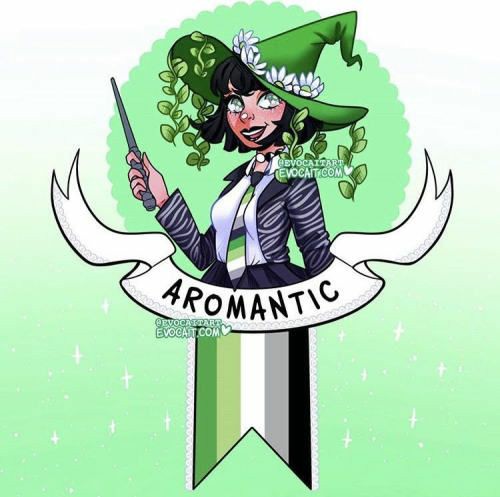7 Myths About Aromantic People and Aromanticism

Disclaimer:- This article is for educational purposes and is based on personal opinions. It is not a substitute for professional advice, but general guidance. We advise you to always listen to your intuition and always do what is right for you.

Do you know what it means to be aromantic? Do you think you might be aromantic too ?
People who identify as aromantic, also known as “aro,” experience little to no romantic attraction towards other people .
The definition of romantic attraction can differ from person to person but the most common one can be referred to as the desire of having emotional contact and intimate interaction with a partner.
Though the actual prevalence of aromanticism is unknown, one study found that about 1% of people identify as asexual, with roughly 25% of these also being aromantic.With the idealistic concepts of romantic relationships, there have been many stereotypes and misconceptions about aromanticism and hence this topic needs to be discussed to make people more aware of what it actually means.
So here are – 7 myths about aromantic people and aromanticism.
1 . ‘Aromantic’ and ‘Asexualty’ are the same
‘Aromantic’ and ‘Asexualty’ do not mean the same thing. Asexual people or otherwise known as ace don’t experience any sexual orientation or attraction towards others ,while aromantic people don’t have any romantic attraction for people of any gender.
Someone who is asexual might form a romantic relationship with another person and unlike aromantic people, they can experience romantic feelings. Whereas, an aromantic person can have sexual orientations and also build a relationship on that.
2 . All aromantic and asexual and vice – versa
Due to lack of evidence-based study on the topic, people sometimes have difficulty distinguishing between romantic and sexual attraction since they are often closely intertwined making studying the topic more difficult.
Although some aromantic people might be asexual , the two are not the same. Romantic attraction and sexual attraction at two different spectrums. Aromantic people do not feel romantic attraction and asexuals don’t feel sexual attraction.
People who are aromantic could also be asexual but not all are asexual and vice versa.
3 . They don’t feel love and are cold and heartless
This is probably the biggest misconception about being aromantic.
There are different kinds of love however – familial love, friendship, partnership, love for pets, love for nature, etc. and many aromantics experience love that is not romantic.They usually prefer platonic relationships which are based on shared interests ,mutual respect and emotional closeness rather than romantic relationships.
Love is a subset of emotion after all, not it’s ultimate form.
4 . It’s just a phase
Sexuality is certainly flexible and changeable, and not everyone who defines as asexual or aromantic will do so for the rest of their lives. However, this does not negate the fact that asexuality and aromanticism are actual orientations, not just phases, and that the majority of persons who identify as ace/aro at some point in their lives continue to identify as ace/aro.
It may take some ace/aros a bit longer to sort things out than others, especially because society tells us that attraction is “natural” and that we will eventually get interested in others. However, someone who is aware that they do not experience attraction has the same identity as someone who is aware that they do.
5 . They haven’t found the right person yet
If you identify as an aro or an ace or even both, you must have heard phrases from family ,relatives ,friends or even colleagues that “You haven’t found the right person yet” or “You haven’t has much dating experience.”
There are many aces and aros who had tried to engage in sexual or romantic relationships respectively, but found that it was just not for them.
The idea that aromantic people just need to meet the ‘right person’ who will unlock their romantic desire and ‘fix’ their aromanticism is quite perplexing. It’s an argument that seems to be applied to aromantic more than other orientations. This statement also plays into the notion that aromantic people are “missing out” on something and haven’t truly discovered our entire selves, that we are incomplete because of our innate characteristics or our life experiences. This isn’t true either.
6 . They don’t want to be in a relationship
Aromantic people may be involved in intimate or sexual relationships however, these relationships may look different from romantic relationships. A lack of romantic interest does not mean that a person does not want intimacy, commitment, or emotional support.
The term “queerplatonic” is sometimes used to mean “a relationship that’s more than friends, but less than romantic.”“Squish” is a similar concept with a better definition: “the platonic equivalent of a romantic crush.”These partnerships are platonic in nature but have the same degree of commitment as a romantic partnership, including cohabitating and making decisions together.
7 . They are lonely
Romantic relationships aren’t the key factor to a person being lonely or not. What does factor into the experience of loneliness are a person’s needs for contact and closeness with others as well as how well they can realize those needs in the environment they’re in.
A person’s demands for contact and intimacy with others, as well as how well they can satisfy those needs in the environment they’re in, have a role in their loneliness experience.Friends, romantic and non-romantic partners, family, and other individuals who are aromatic may provide assistance.
If you’re aromantic, don’t feel obligated to participate in romantic or sexual settings with which you’re not at ease. Don’t force yourself to do things to match the expectations of others or to avoid social pressure. And if you know someone who is aromantic try not to make assumptions about their orientations, rather ask them for information if you’re not aware.
Do you feel the same? Let us know in the comments below. Also, remember to like and share this article with those who might benefit from it.
References:-
Verywellmind.com – What does it mean to be aromantic.
https://www.verywellmind.com/what-does-it-mean-to-be-aromantic-5189571
OULGBTQ + SOCIETY – Ace/Aro Mythbusting
http://www.oulgbtq.org/acearo-mythbusting.html
Aromantics wiki – Myths about aromantics
https://aromantic.wikia.org/wiki/Myths_about_aromanticsEveryday Feminism – 5 Myths People Believe About Aromanticism That Just Aren’t Truehttps://everydayfeminism.com/2015/12/myths-about-aromanticism/




Responses